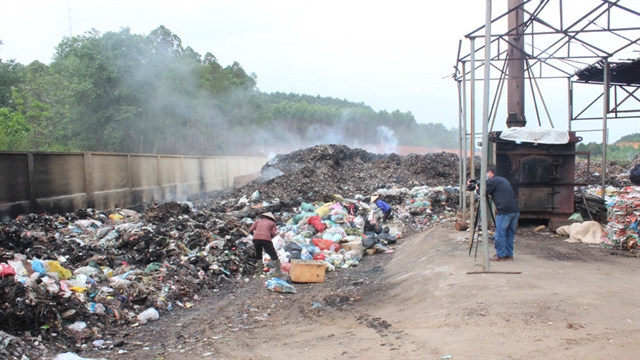 Society
Society


|
| Waste being incinerated in a landfill in Bắc Giang. The accumulation of untreated waste has exposed the need for a new waste-to-energy plant in the province. — Photo baobacgiang.com.vn |
HÀ NỘI — Bắc Giang Province is working on a scheme to build a waste-to-energy plant in Đa Mai Ward that can combust 750 tonnes of waste per day.
According to Bắc Giang's Department of Natural Resources and Environment, the province generates about 965 tonnes of solid waste daily.
While 87 per cent of the waste can be collected and disposed of properly, 13 per cent goes to open dumps untreated. Over recent years, the latter has amounted to nearly 5,800 tonnes.
It was that environmental threat that resulted in a scheme to build a new waste-to-energy plant to fill the capacity gap. The 12MW facility is expected to incinerate 750 tonnes of waste daily.
The investor of the plant, Bắc Giang Environmental Energy Company LTD, has partnered with Power Engineering Consulting Joint Stock Company 4 to prepare an environmental impact assessment report on the plant.
In the report, the Martin combustion technology will be employed on the grounds of its efficiency, which has been tried and tested in many countries for decades. The technology allows the plant to incinerate waste without prior sorting and enables operators to run and maintain the facility with ease.
Being constructed on land of 66,000 sqm earmarked for waste treatment, the construction of the plant will not cause a displacement of people in the ward.
It will be located at a site 500m away from the residential area of Lò Village and 1,000m from Thanh Mai Ward. Its treated wastewater will be discharged into Hoàng Thanh Stream, a narrow river lying next to the plant and feeding into the Thương River.
"The facility will operate with the Martin combustion technology, which allows trucks to transport waste directly to it without prior sorting," said the report.
Construction work is scheduled to take place between July 2024 and August 2025. The facility is expected to come into operation in October 2025. — VNS




